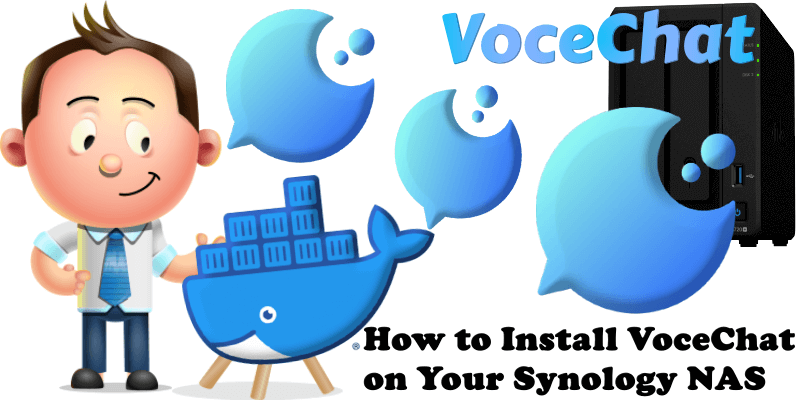
VoceChat is a secure chat software that supports independent deployment. The data is completely controlled by the user. It supports the whole process of encrypted transmission and can be burned immediately after reading. The function is inspired by products and specifications such as Slack, Discord, RocketChat, Matrix and Solid. VoceChat server is the smallest, stablest and most efficient independent chat server on today’s market. Through personalized computing and personalized storage, individuals and organizations can have their own platforms on their own cloud server. Therefore, VoceChat is created and positioned as a social collaboration program that can be easily deployed on the private cloud by any party. The free version proposed in this guide has a Limited Bot and Webhook, but a Public and Private Channel available, and it’s limited to 20 members. With the possibility to upgrade at only 49EUR one time payment and a Chat widget for customer service, Unlimited Members and Bot with NO recurring charges. You also have the possibility to install the free mobile app available for Android and iOS. In this step by step guide I will show you how to install VoceChat on your Synology NAS using Docker & Portainer.
STEP 1
Please Support My work by Making a Donation.
STEP 2
Install Portainer using my step by step guide. If you already have Portainer installed on your Synology NAS, skip this STEP. Attention: Make sure you have installed the latest Portainer version.
STEP 3
Make sure you have a synology.me Wildcard Certificate. Follow my guide to get a Wildcard Certificate. If you already have a synology.me Wildcard certificate, skip this STEP.
STEP 4
Go to Control Panel / Login Portal / Advanced Tab / click Reverse Proxy. Follow the instructions in the image below.
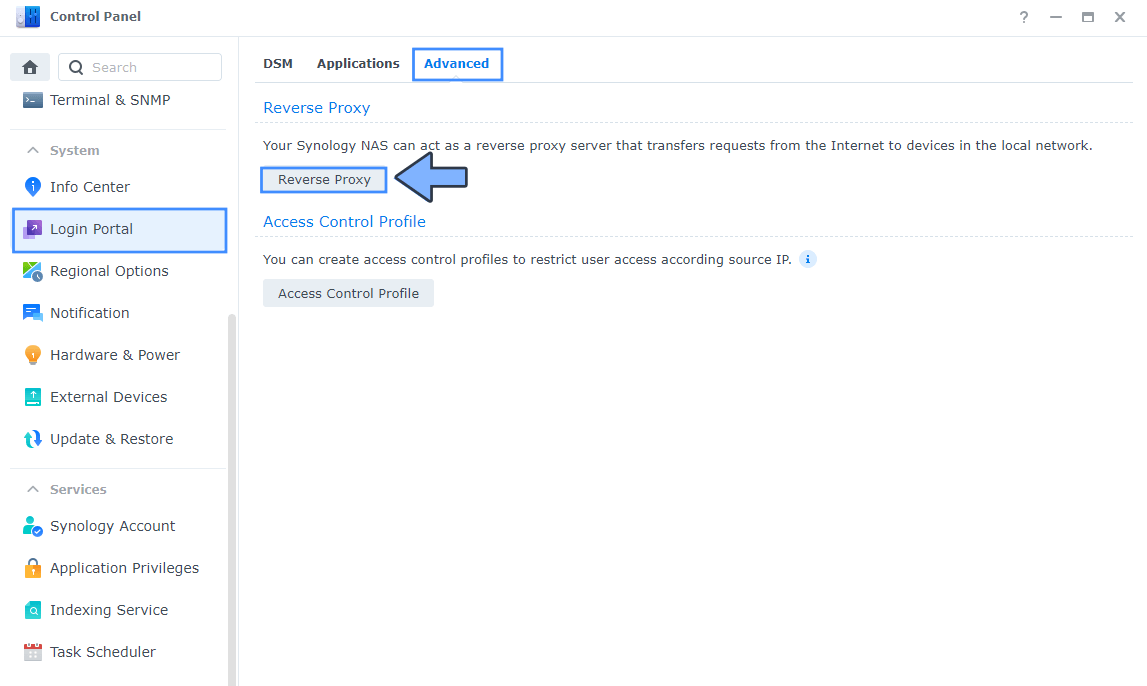
STEP 5
Now click the “Create” button. Follow the instructions in the image below.
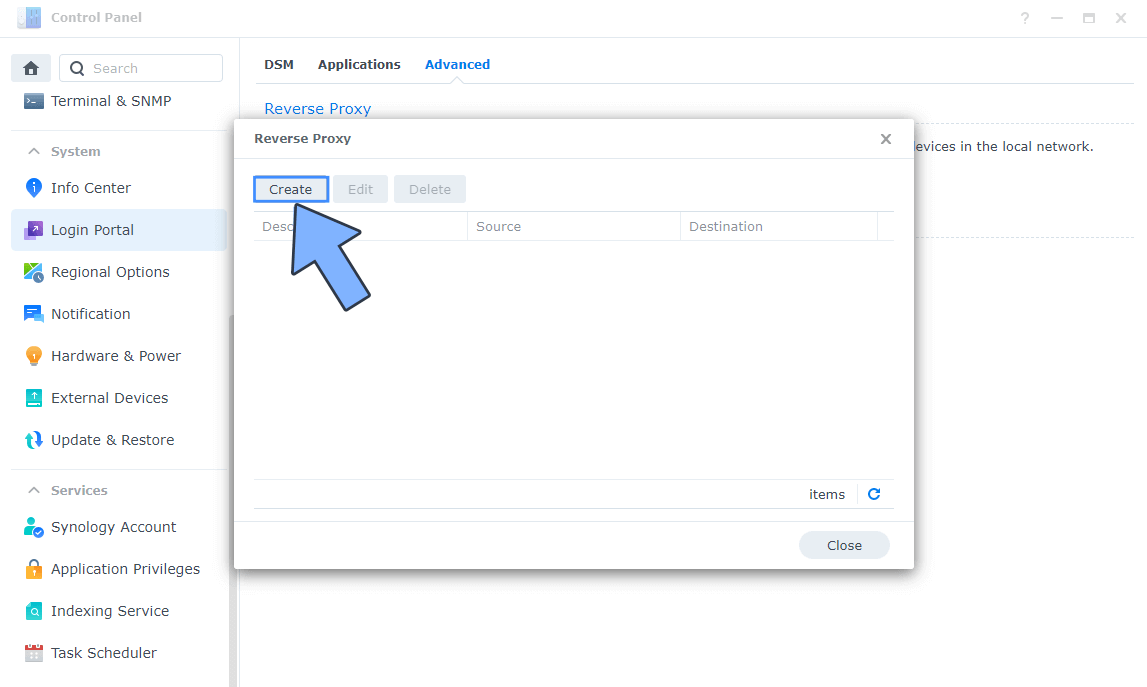
STEP 6
After you click the Create button, the window below will open. Follow the instructions in the image below.
On the General area, set the Reverse Proxy Name description: type in VoceChat. After that, add the following instructions:
Source:
Protocol: HTTPS
Hostname: vocechat.yourname.synology.me
Port: 443
Check Enable HSTS
Destination:
Protocol: HTTP
Hostname: localhost
Port: 3430
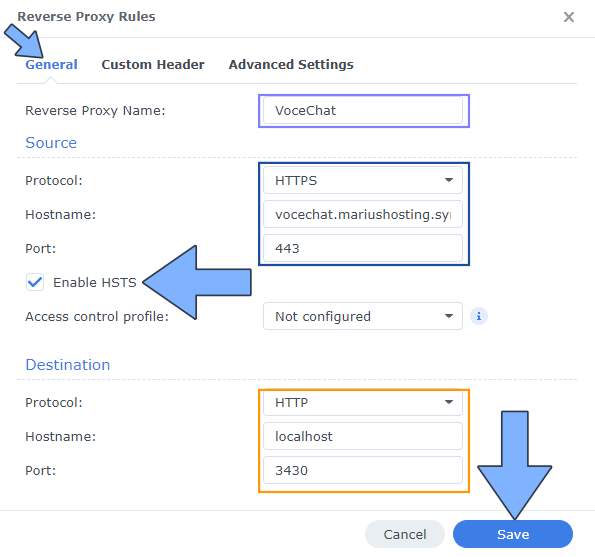
STEP 7
On the Reverse Proxy Rules, click the Custom Header tab. Click Create and then, from the drop-down menu, click WebSocket. After you click on WebSocket, two Header Names and two Values will be automatically added. Click Save. Follow the instructions in the image below.

STEP 8
Go to Control Panel / Network / Connectivity tab/ Check Enable HTTP/2 then click Apply. Follow the instructions in the image below.
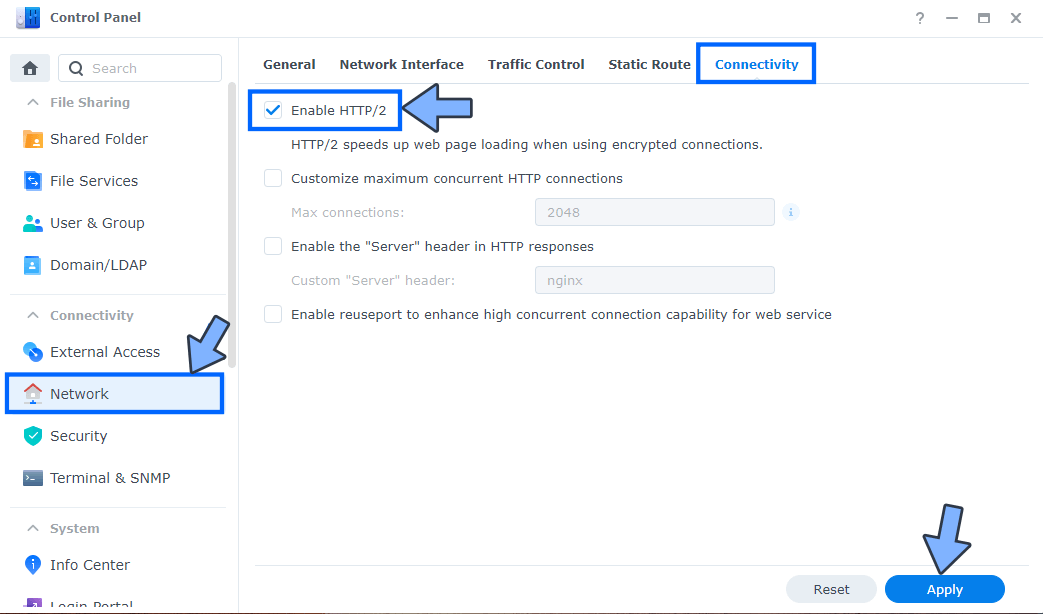
STEP 9
Go to Control Panel / Security / Advanced tab/ Check Enable HTTP Compression then click Apply. Follow the instructions in the image below.
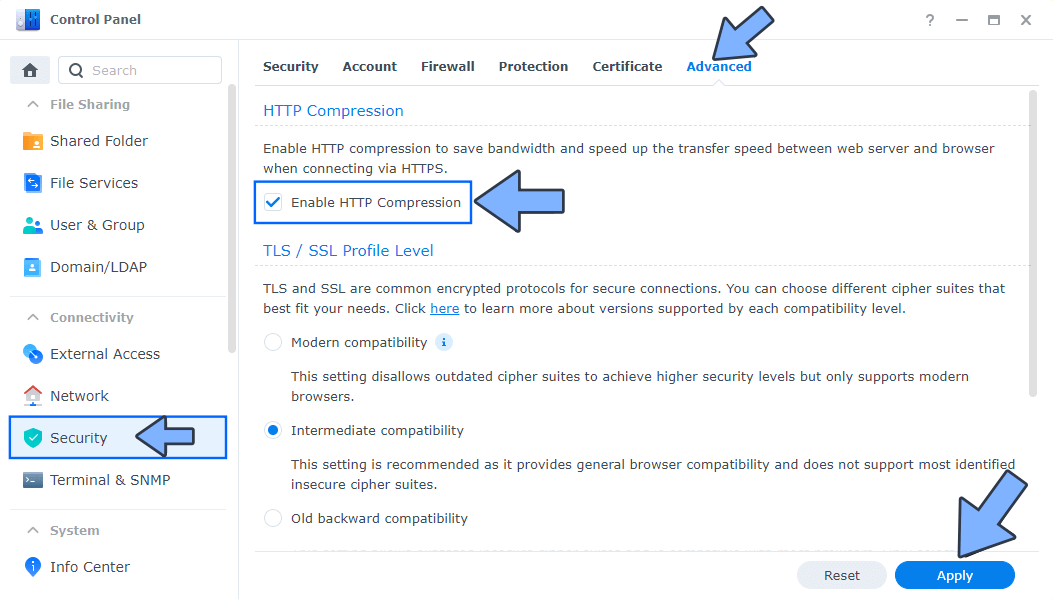
STEP 10
Go to File Station and open the docker folder. Inside the docker folder, create one new folder and name it vocechat. Follow the instructions in the image below.
Note: Be careful to enter only lowercase, not uppercase letters.
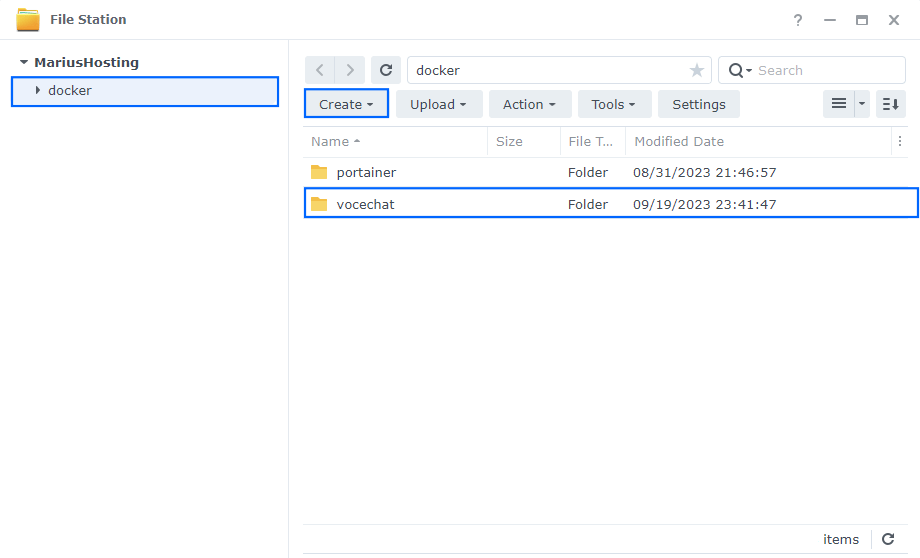
STEP 11
Log into Portainer using your username and password. On the left sidebar in Portainer, click on Home then Live connect. Follow the instructions in the image below.

On the left sidebar in Portainer, click on Stacks then + Add stack. Follow the instructions in the image below.

STEP 12
In the Name field type in vocechat. Follow the instructions in the image below.
version: "3.9"
services:
vocechat:
container_name: VoceChat
image: privoce/vocechat-server:latest
mem_limit: 6g
cpu_shares: 768
security_opt:
- no-new-privileges:true
restart: on-failure:5
ports:
- 3430:3000
volumes:
- /volume1/docker/vocechat:/home/vocechat-server/data:rw
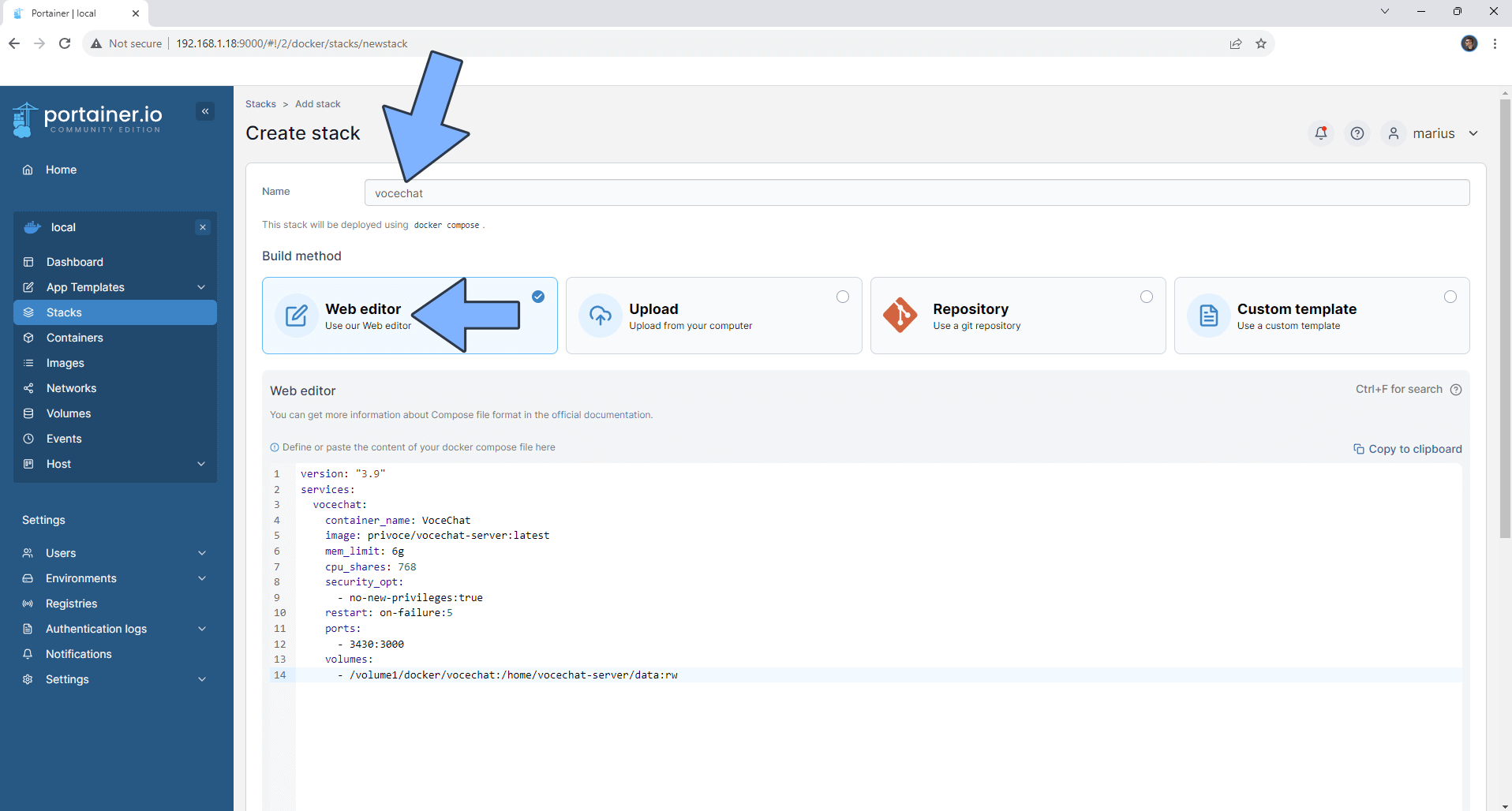
STEP 13
Scroll down on the page until you see a button named Deploy the stack. Click on it. Follow the instructions in the image below. The installation process can take up to a few minutes. It will depend on your Internet speed connection.
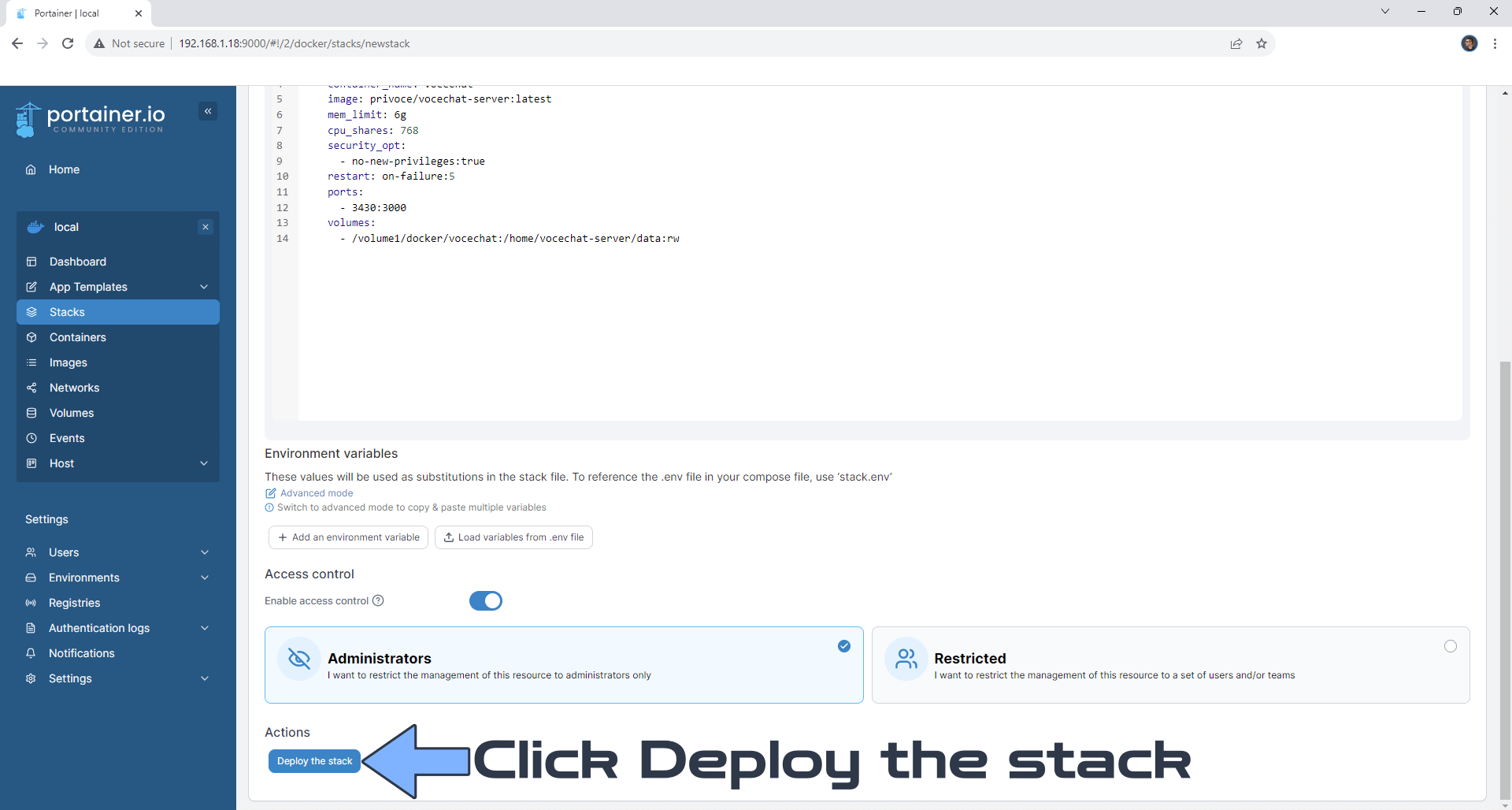
STEP 14
If everything goes right, you will see the following message at the top right of your screen: “Success Stack successfully deployed“.

STEP 15
🟢Please Support My work by Making a Donation. Almost 99,9% of the people that install something using my guides forget to support my work, or just ignore STEP 1. I’ve been very honest about this aspect of my work since the beginning: I don’t run any ADS, I don’t require subscriptions, paid or otherwise, I don’t collect IPs, emails, and I don’t have any referral links from Amazon or other merchants. I also don’t have any POP-UPs or COOKIES. I have repeatedly been told over the years how much I have contributed to the community. It’s something I love doing and have been honest about my passion since the beginning. But I also Need The Community to Support me Back to be able to continue doing this work.
STEP 16
Now open your browser and type in your HTTPS/SSL certificate like this https://vocechat.yourname.synology.me In my case it’s https://vocechat.mariushosting.synology.me If everything goes right, you will see the VoceChat installation page. In the browser, click Allow to show notifications. Click Start. Follow the instructions in the image below.
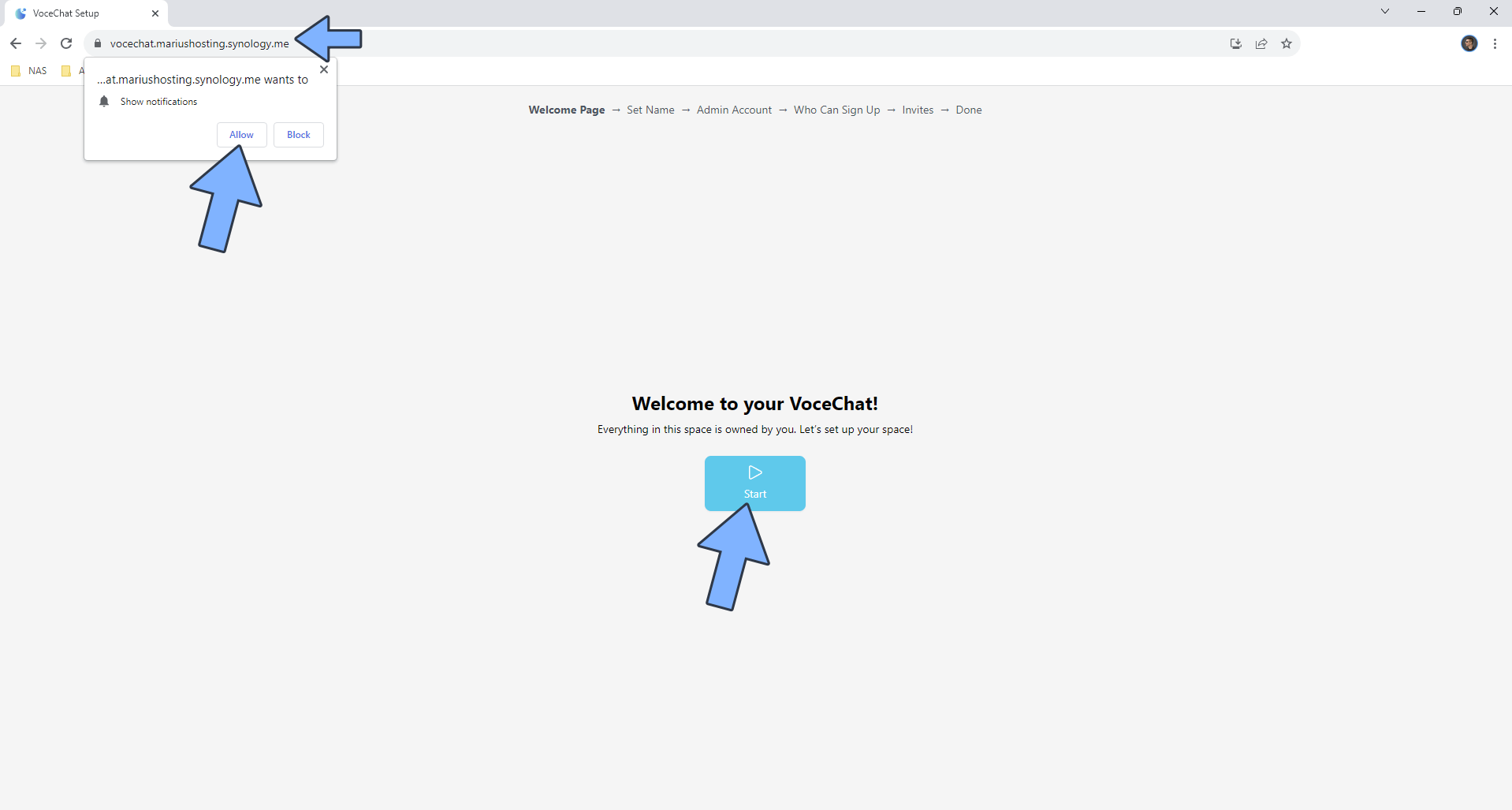
STEP 17
Give a name to your server, then click Create Server. Follow the instructions in the image below.
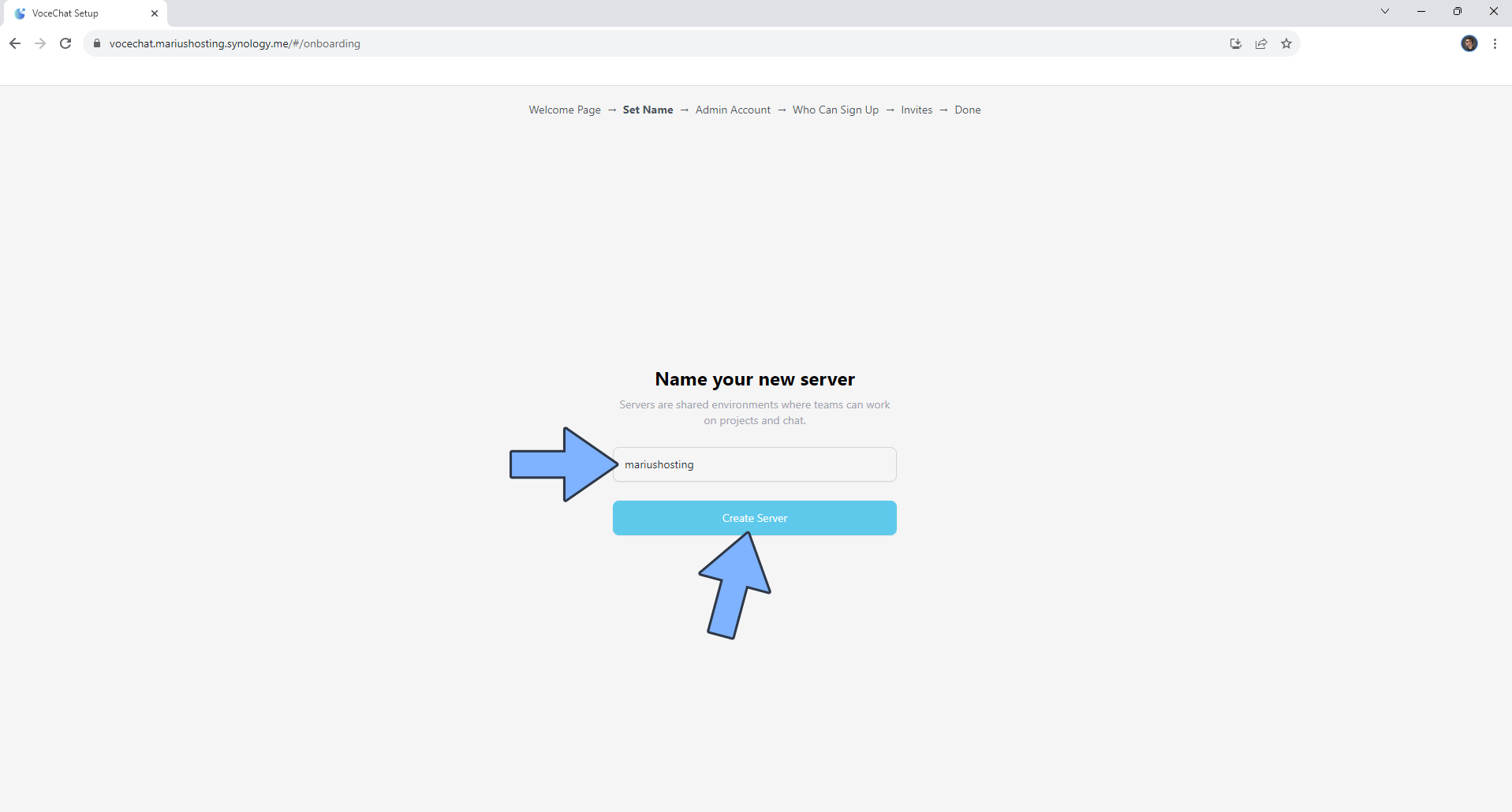
STEP 18
Type in your own email address and password then click Sign Up. Follow the instructions in the image below.
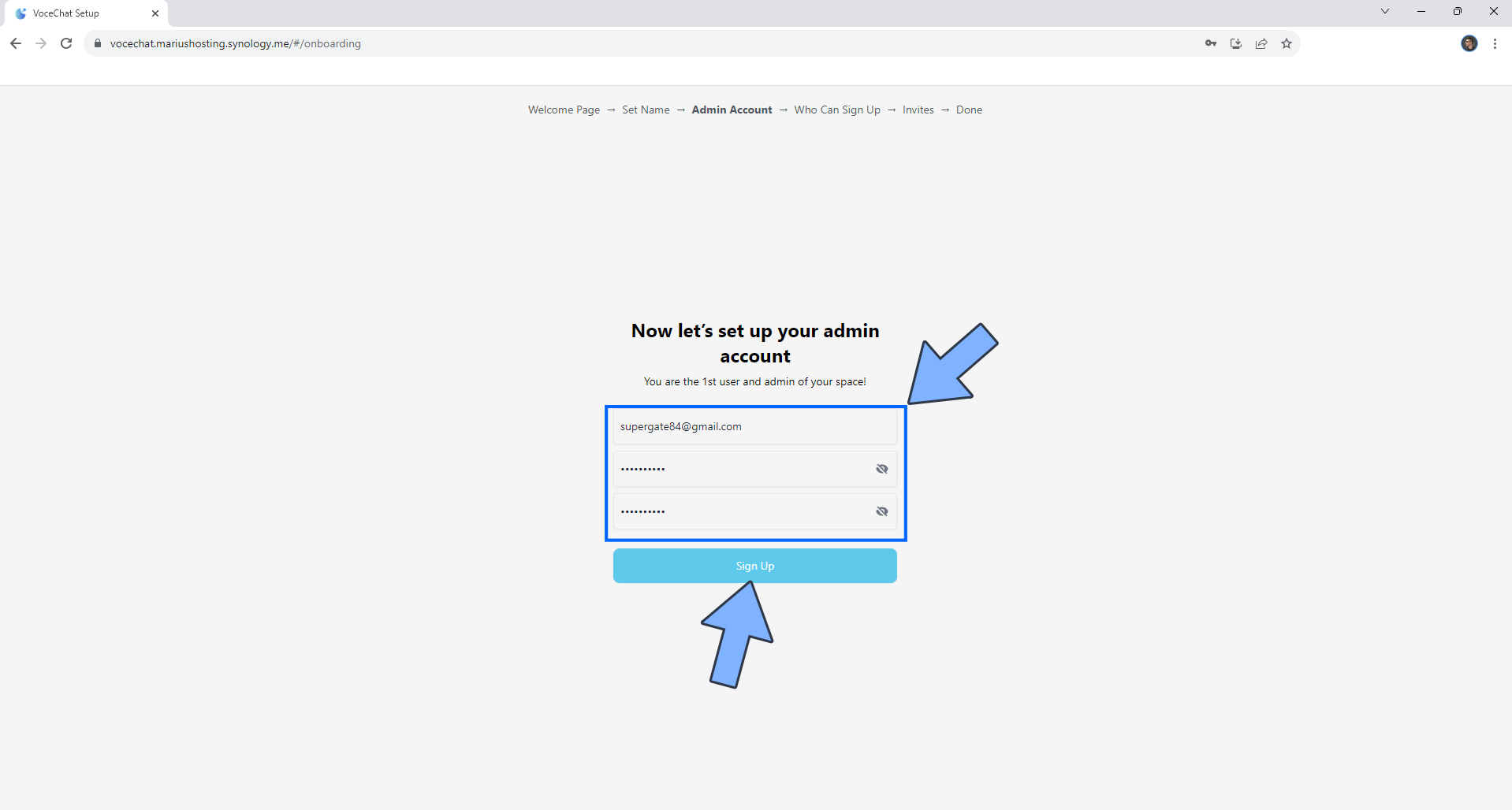
STEP 19
Choose who can sign up to your server, either Everyone or specific people that have your invitation link. Click Confirm. Follow the instructions in the image below.
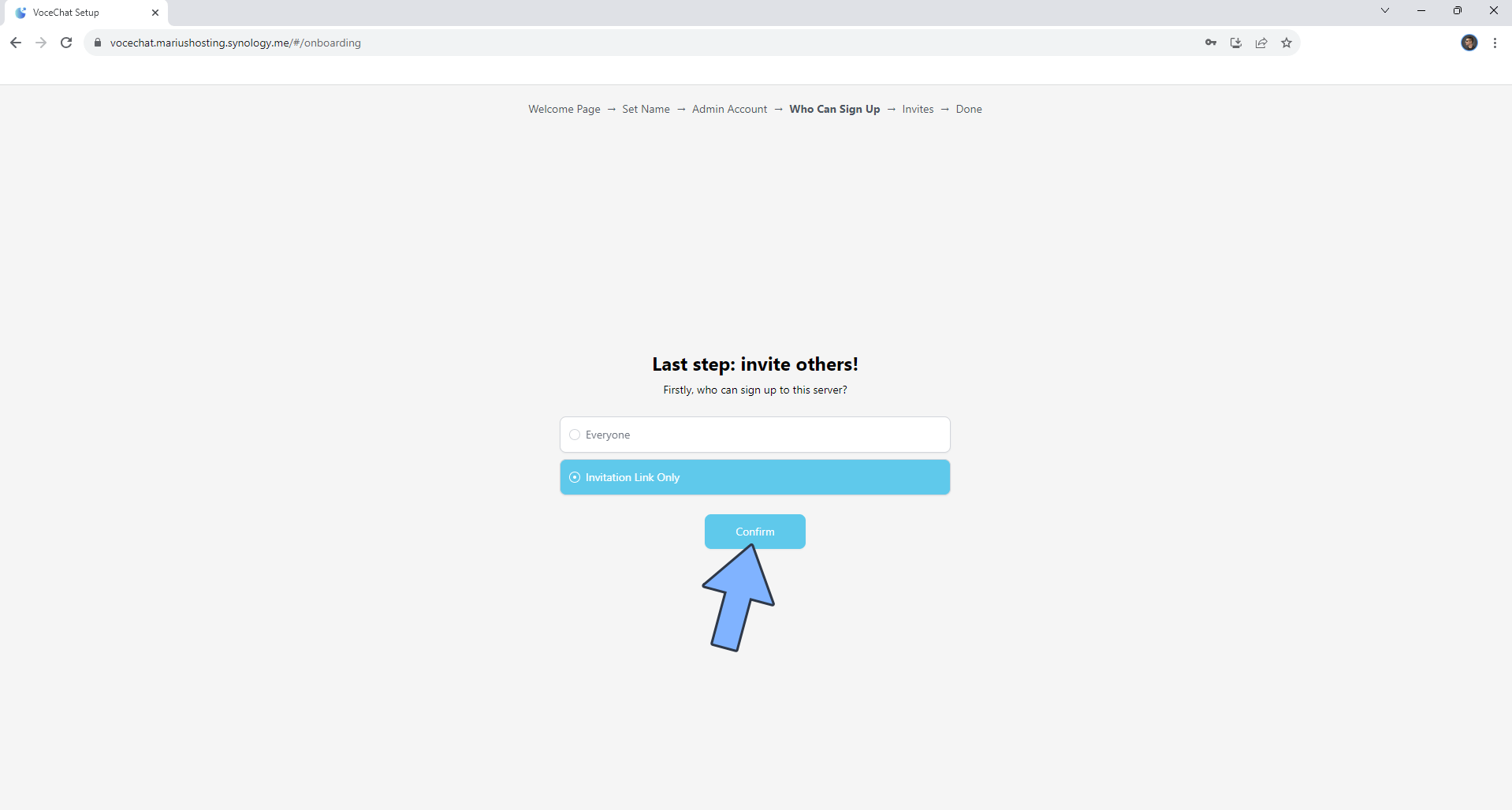
STEP 20
Send your invitation Link to your friends. Click Done. Follow the instructions in the image below.
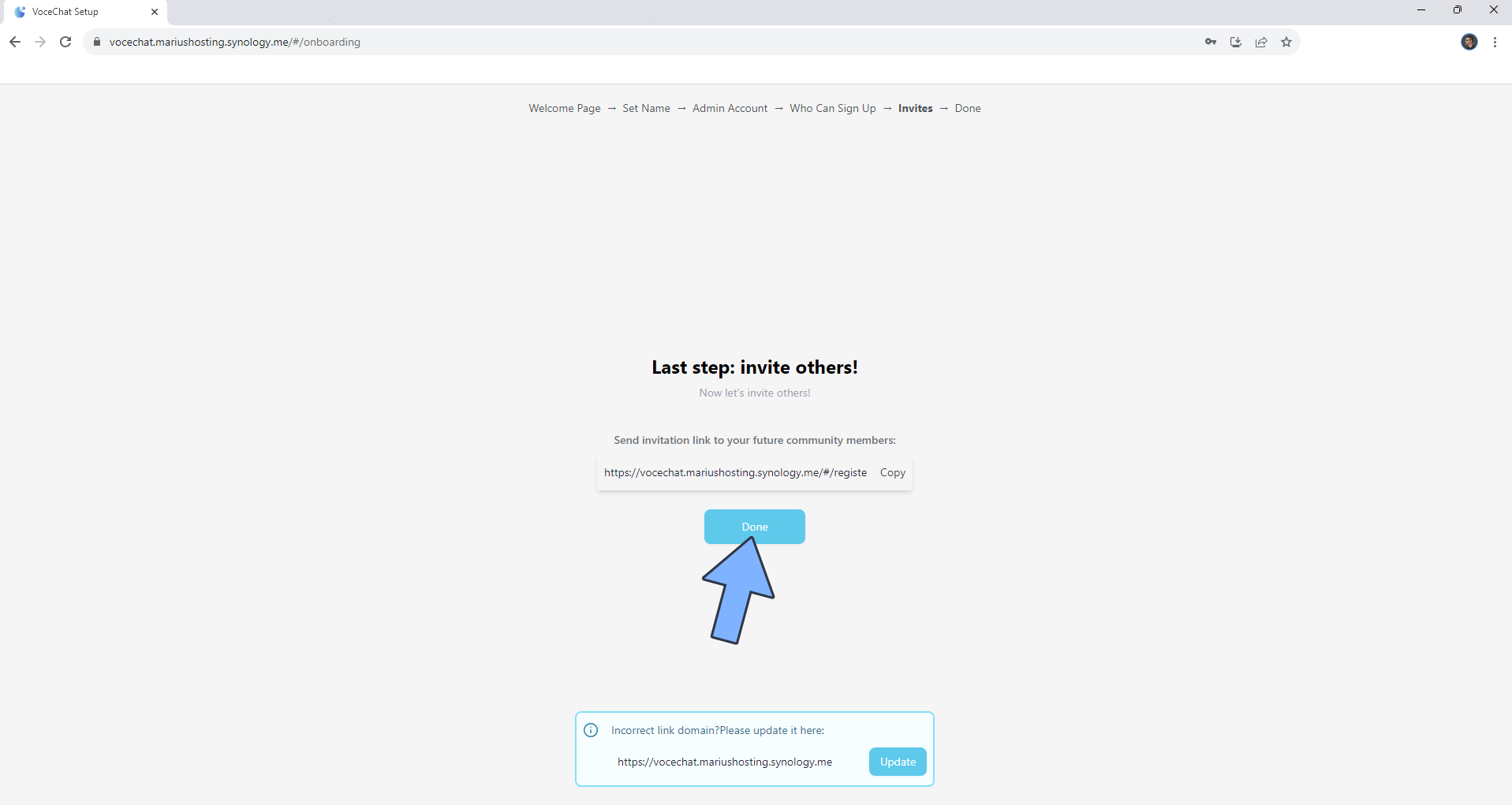
STEP 21
Click Enter. Follow the instructions in the image below.

STEP 22
On the left, at the bottom of the page, click the gear icon to access the settings. Follow the instructions in the image below.
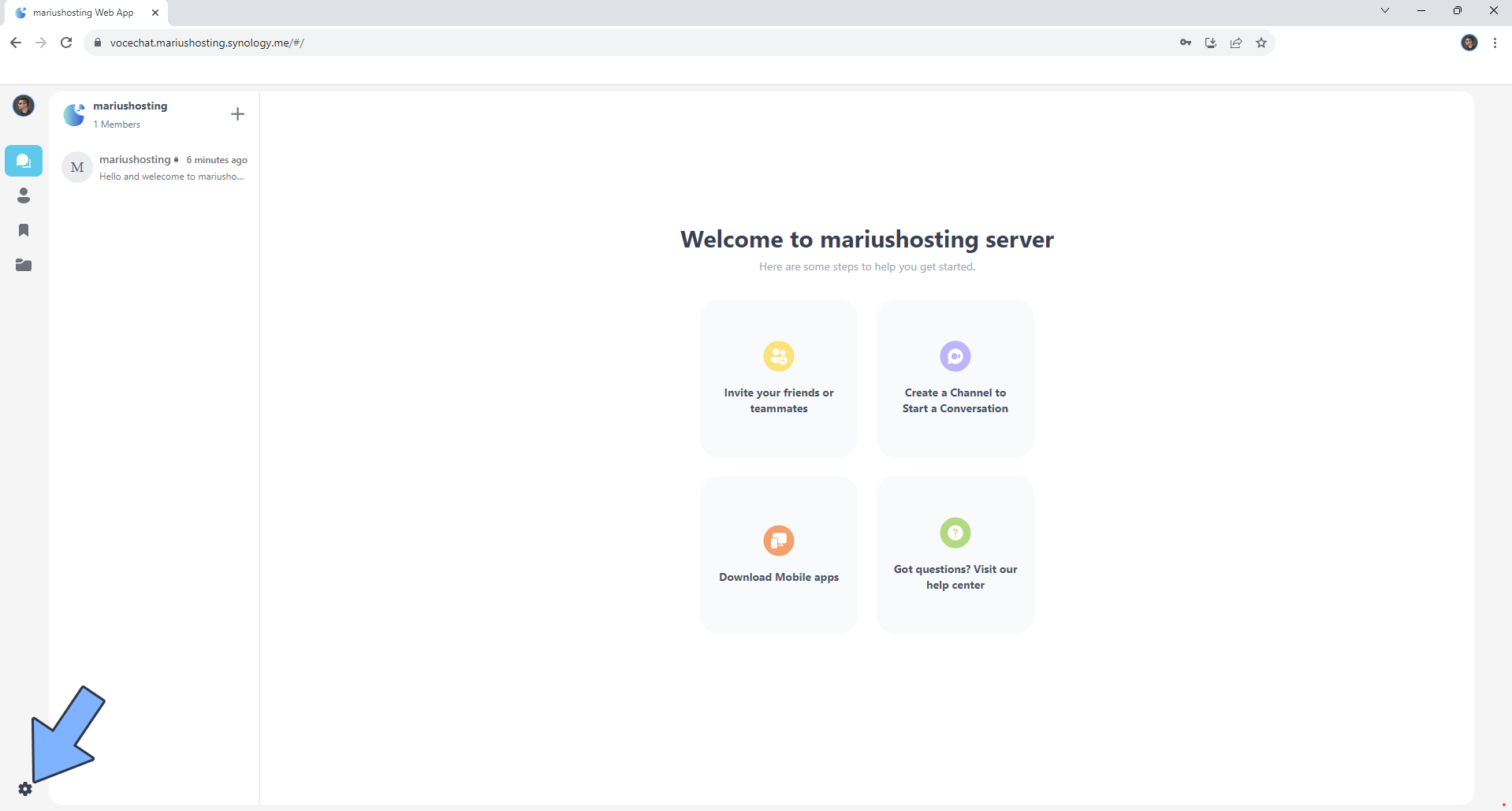
STEP 23
Choose your favorite theme, in my case, Dark. Follow the instructions in the image below.
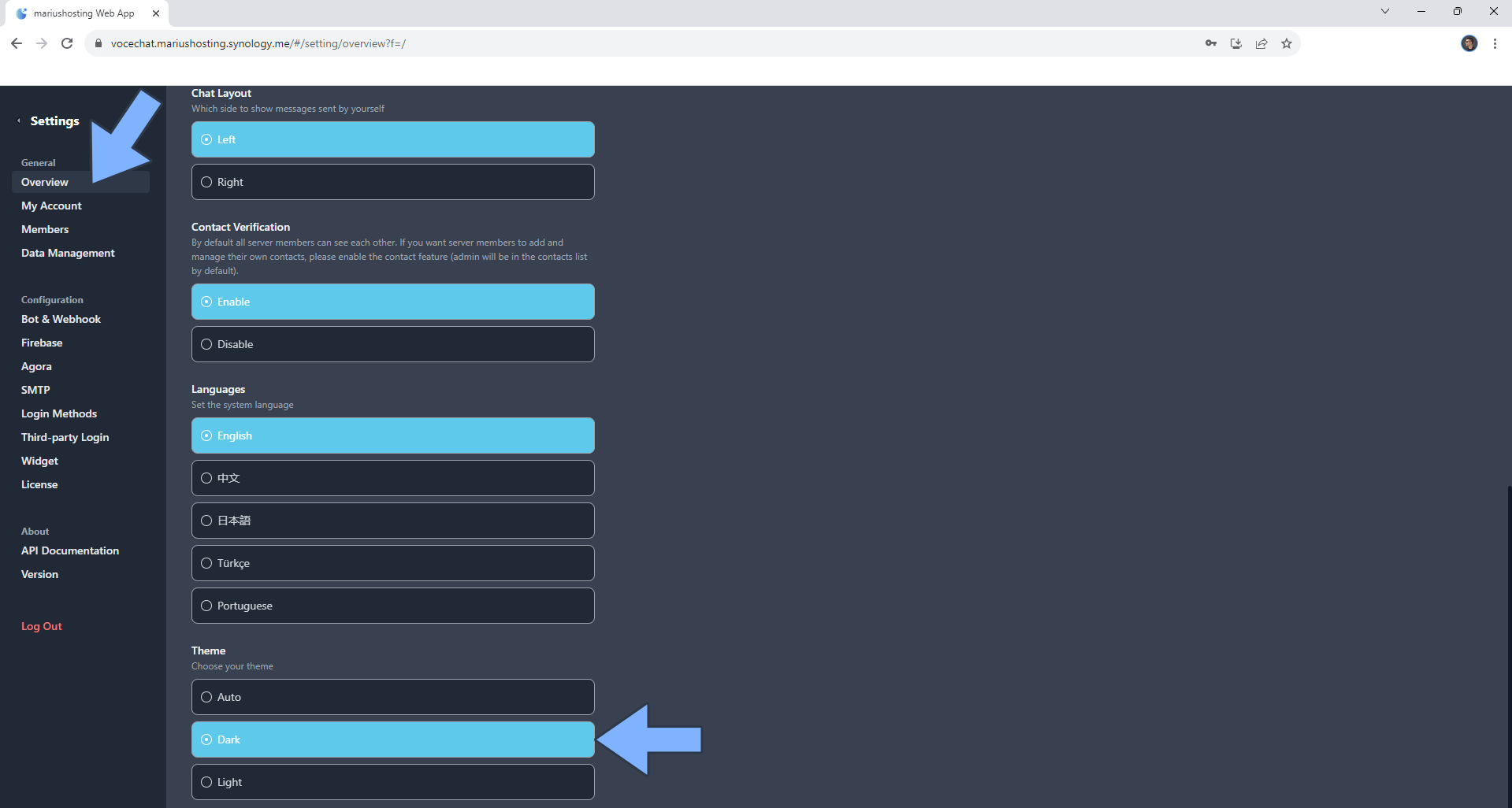
STEP 24
Your VoceChat dashboard at a glance!
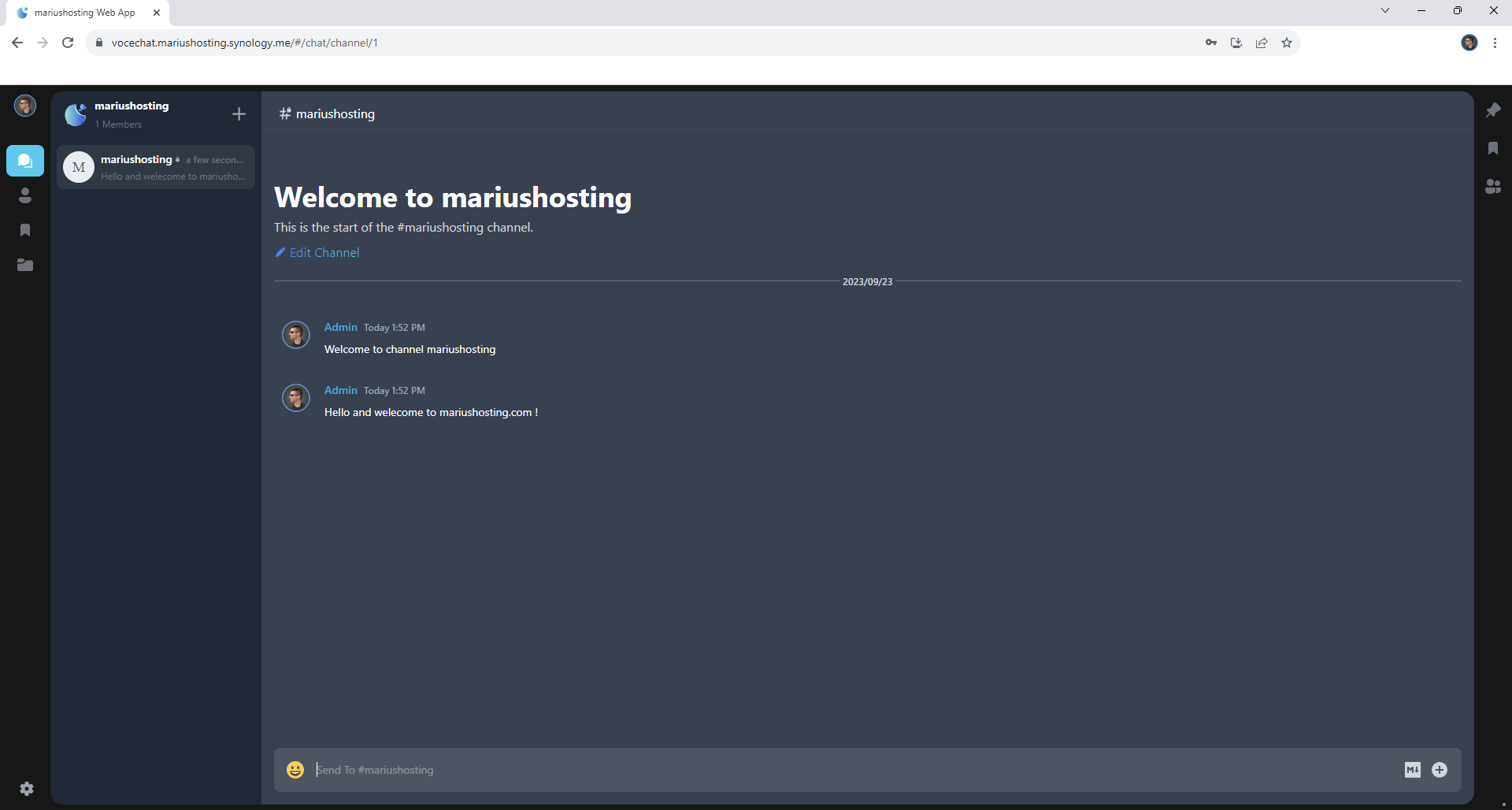
STEP 25
Set up Email Notifications on VoceChat.
Enjoy VoceChat!
If you encounter issues by using this container, make sure to check out the Common Docker issues article.
Note: Can I run Docker on my Synology NAS? See the supported models.
Note: How to Back Up Docker Containers on your Synology NAS.
Note: Find out how to update the VoceChat container with the latest image.
Note: How to Free Disk Space on Your NAS if You Run Docker.
Note: How to Schedule Start & Stop For Docker Containers.
Note: How to Activate Email Notifications.
Note: How to Add Access Control Profile on Your NAS.
Note: How to Change Docker Containers Restart Policy.
Note: How to Use Docker Containers With VPN.
Note: Convert Docker Run Into Docker Compose.
Note: How to Clean Docker.
Note: How to Clean Docker Automatically.
Note: Best Practices When Using Docker and DDNS.
Note: Some Docker Containers Need WebSocket.
Note: Find out the Best NAS Models For Docker.
Note: Activate Gmail SMTP For Docker Containers.
This post was updated on Wednesday / August 27th, 2025 at 4:52 PM
